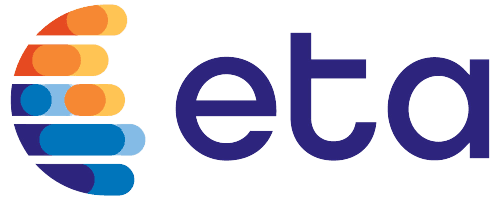Did you know that 0.86% of health and wellness transactions end as a chargeback? Or that the true cost of a $100 chargeback is really $240? For healthcare businesses, payment processing is not just a logistical concern but a major financial risk. Many of these companies face extra challenges in managing this risk due to being classified under the often misunderstood MCC 8099.
If your medical business takes insurance co-pays, sells health products, or offers services not covered by insurance, there's a good chance you fall under MCC 8099. This catch-all category, which encompasses everything from medical spas to direct primary care practices to health coaching, has unique implications around accepting payments.
In this article, we'll explain exactly what MCC 8099 means, why it matters so much for your business, and how you can navigate the complex payment processing industry and protect your bottom line. Whether you're just starting out or have been in business for years, understanding MCC 8099 is crucial to managing your financial risk and ensuring smooth operations.
What is MCC 8099?
MCC 8099 is a merchant category code credit card networks and payment processors use to classify business types. Specifically, it's the four-digit number for "Health Practitioners, Medical Services – Not Elsewhere Classified."
In simpler terms, MCC 8099 is a catch-all category for medical businesses that don't fit into other, more specific healthcare MCCs. Some examples of businesses that typically fall under MCC 8099 include:
- Medical spas and aesthetics services
- Direct primary care practices
- Concierge medicine providers
- Health coaching and wellness services
- Medical equipment and supply sales
- Home health care services
Essentially, if a business provides health-related services or products but isn't a hospital, dental office, pharmacy, or other commonly classified type of medical business, there's a good chance it uses MCC 8099 for payment processing.
How Do MCCs Work?
When a business starts accepting credit or debit card payments, the payment processor, in partnership with the credit card company, assigns it a merchant category code based on the type of goods or services it provides. This four-digit code provides a standardized way for card networks and financial institutions to track and analyze payments.
A business's MCC affects the fees it pays to process payments, the level of risk it's perceived to carry, and its eligibility for certain services. For medical businesses, like health care or wellness services, being classified under MCC 8099 can come with unique challenges from card networks, as we'll explore in the following sections.
Why Your Business's MCC Matters
Your business's merchant category code might seem like an unimportant technicality, but it can actually have major implications for your day-to-day payment processing operations and costs. Here's how.
Interchange Fees
One of the primary ways your MCC affects your bottom line is through interchange fees. These are the fees that your business pays to the customer's issuing bank each time you process a credit or debit card transaction.
Interchange fees are determined by a complex matrix of factors, including the type of card used and the level of risk as assessed by the credit card company. This includes - you guessed it - your MCC. Businesses in high-risk industries, including many that fall under MCC 8099, often pay higher interchange fees than those in lower-risk categories.
Chargeback and Fraud Risk
In addition to higher fees, businesses in certain MCCs are often considered to carry a greater risk of chargebacks and fraud. Medical services, in particular, are prone to so-called "friendly fraud," where a customer receives a service but later disputes the charge.
Businesses with excessive chargebacks can face serious consequences, including hefty fines, higher processing costs, and even the loss of their merchant accounts. As such, processors often impose stricter security requirements and monitoring on businesses in high-risk MCCs.
Underwriting and Contract Implications
When you apply for a merchant account to accept card payments, the processor's underwriting team evaluates your business based largely on your MCC. For businesses classified as high-risk, the underwriting process is often more involved, and the contract terms are less favorable.
Processors may require more extensive documentation, impose higher fees and rolling reserves, and stipulate longer contract terms for businesses in MCCs deemed high-risk. They may also limit your monthly processing volume or the types of transactions you can accept.
The Bottom Line
Your merchant category code is much more than a number—it's a key factor in determining how much you pay to process payments, the level of risk your business is exposed to, and the hoops you may need to jump through to secure and maintain a merchant account.
For businesses operating in high-risk MCCs like 8099, it's especially critical to understand these implications and work proactively to minimize their impact. In the next section, we'll explore strategies for doing just that.
Finding a Payment Processor for MCC 8099 Businesses
If your business operates in the MCC 8099 category of the payment processing industry, you might face some unique challenges when securing a payment processor. However, with some knowledge and strategizing, you can find a processor that meets your needs and sets your business up for success.
Challenges with Mainstream Processors
Many of the largest payment processors and merchant service providers simply don't work with businesses they consider high-risk. Others may accept some high-risk accounts but charge exorbitant fees and impose strict contract terms.
For example, a medical spa owner might approach a well-known payment processor only to be told they don't service her industry. Or a health coaching practice might get approved for an account but be subject to rolling reserves, monthly minimums, and a multi-year contract with hefty early termination fees.
The Benefits of Specialized Processors
Fortunately, some payment processors specialize in working with high-risk businesses, including those in MCC 8099. These processors have a deeper understanding of how card networks evaluate high-risk businesses, which allows them to offer more favorable contract terms and lower fees.
Specialized high-risk processors are more likely to take the time to understand your specific business model and operations. They can often offer more flexible underwriting, competitive pricing, and contract terms better aligned with your business needs.
Choosing the Right Processor
When evaluating potential payment processors, there are several key factors you should consider:
- Experience with your specific industry and business model
- Pricing and fees, including any monthly or annual fees, transaction fees, and chargeback fees
- Contract terms, including length, early termination fees, and account reserve requirements
- Payment technology and security features, such as PCI compliance, fraud detection tools, and chargeback management
- The breadth of services, including support for recurring billing, integrated invoicing, and online payment portals
- Quality and responsiveness of customer support
Look for a provider with a track record of working successfully with businesses similar to yours, offering transparent, fair pricing and contract terms. Make sure their technology and services align with your needs and that they provide robust support to help you navigate any challenges that arise.
The Bottom Line
Finding a payment processor as an MCC 8099 business requires some extra due diligence, but it's far from impossible. By seeking out processors specializing in high-risk industries and carefully evaluating your options, you can find a partner that positions your business for long-term success.
In the next section, we'll explore some strategies you can implement in your own business to further mitigate risk and optimize your payment processing operations.
Strategies for Success: Best Practices for MCC 8099 Businesses
Running a successful business in a high-risk industry like MCC 8099 requires a proactive, strategic approach to managing payments. Here are some best practices you can implement to reduce risk and create a smoother payment experience for your patients or clients.
1. Educate Your Patients on Payment Policies
One of the most effective ways to prevent payment misunderstandings and disputes is to communicate your policies upfront. Make sure your patients or clients understand the following:
- What payment methods you accept
- When payment is due
- Your refund and cancellation policies
- Any fees for late payments or returned transactions
Consider having patients sign a payment authorization form that outlines these policies. This can serve as valuable documentation in the event of a chargeback or dispute.
2. Use Secure, Compliant Payment Technology
Protecting your patients' sensitive payment data is not only a good business practice, but also a regulatory requirement. Make sure you're using a payment gateway and processing tools that are fully PCI-compliant and have robust security features like:
- Point-to-point encryption to protect data in transit
- Tokenization to replace sensitive data with a unique identifier
- Fraud screening tools to identify and block suspicious transactions
Work with your payment processor to ensure you have the right technology in place and that you're using it correctly.
3. Keep Detailed Records
Maintaining thorough documentation is crucial for businesses in high-risk industries. For each transaction, aim to keep records of:
- Signed intake forms or contracts outlining your services and payment terms
- Itemized invoices detailing the services provided and amounts charged
- Signed payment authorizations or receipts
- Treatment notes or other documentation of services rendered
If a patient disputes a charge, this documentation can help you make your case and avoid a chargeback.
Putting It All Together: Your MCC 8099 Action Plan
Navigating the complexities of the MCC 8099 category in the payment processing industry can feel overwhelming, but by understanding the landscape and implementing strategic best practices, you can set your business up for success.
Here's your action plan:
- Understand your risk profile. Recognize that as an MCC 8099 business, you're considered high-risk, and understand what that means for your payment processing.
- Find the right payment partner. Work with a payment processor that specializes in high-risk industries and offers the services, technology, and support you need.
- Implement best practices. Educate your patients, use secure and compliant tools, and keep detailed records to mitigate risk and create a positive payment experience.
- Stay informed and adaptable. Stay on top of changes in regulations, technology, and best practices, and be ready to adapt your strategies as needed.
Payment processing may be complex, but it doesn't have to be a barrier to your business's success. By being proactive and strategic, you can navigate the challenges of MCC 8099 and focus on what matters most - providing top-notch services to your patients or clients.
Is your business ready to level up its payment processing strategy? Contact Zen Payments today to learn how our specialized payment solutions can help your MCC 8099 business thrive.






